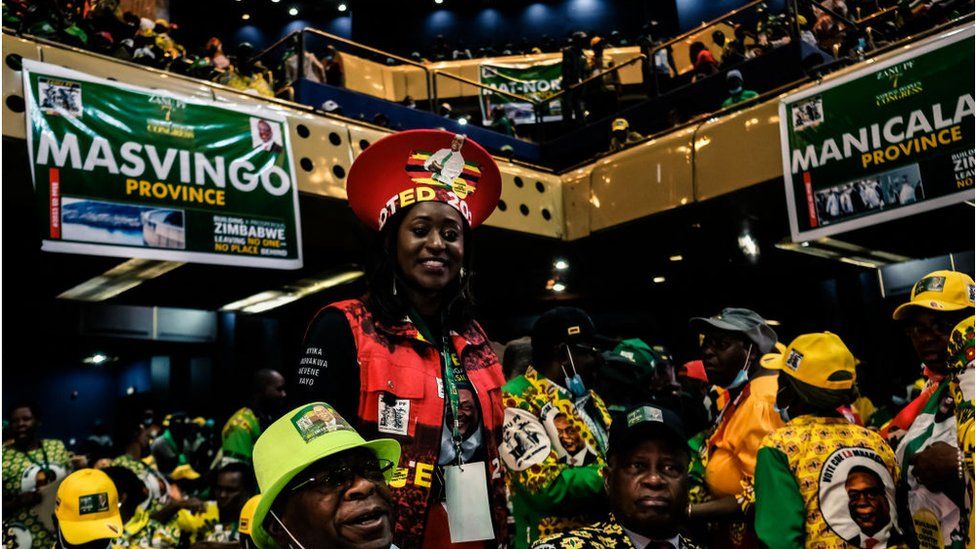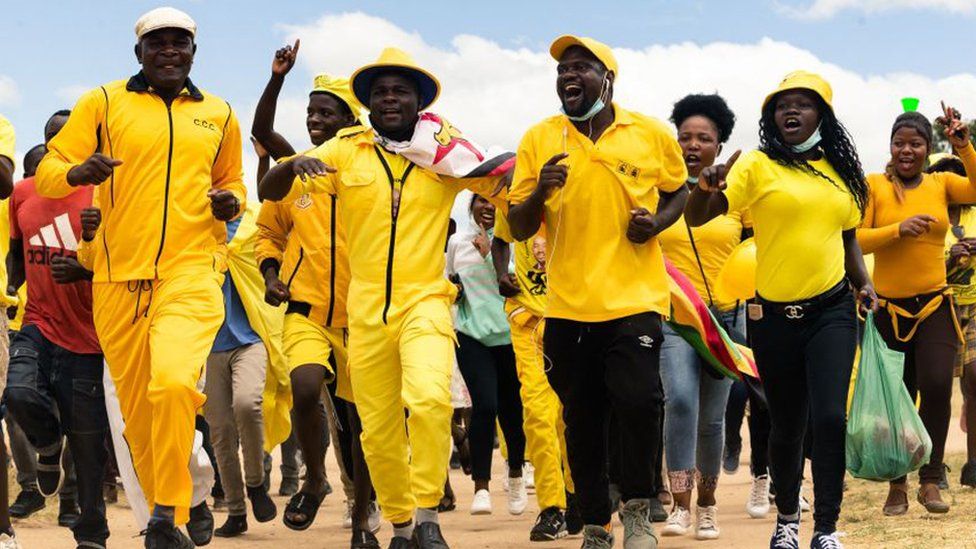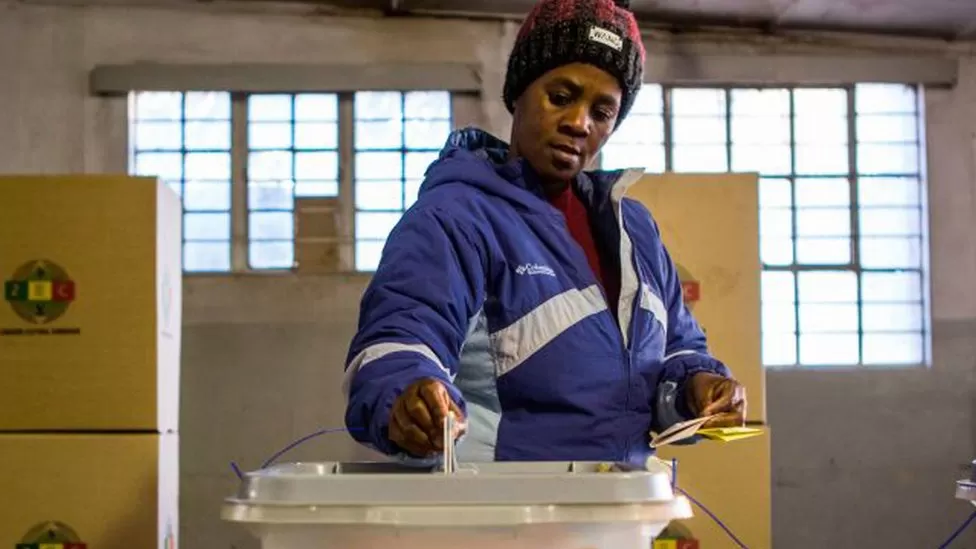Zimbabwe heads to the polls in August against a backdrop of one of the world’s highest rates of inflation and accusations of an intensifying crackdown on the opposition.
Long-time president Robert Mugabe was deposed in 2017 but many say that little has changed.
In the run-up to the vote, questions linger over how free and fair the ballot will be in a country that is trying to rehabilitate its image.

When are the elections?
Zimbabweans will vote on 23 August to elect councillors, members of parliament, and a president. If there is no outright winner in the presidential contest, a run-off will be held six weeks later, on 2 October.
Who is running for president?
Zimbabwe’s electoral commission has approved 11 candidates.
This is sharply down on the 23 who contested the last election, in 2018, no doubt because each candidate now has to pay $20,000 (£16,000), up from $1,000 (£800).
But the contest is likely to be between two candidates:
- Incumbent Emmerson Mnangagwa, from the governing Zanu-PF party
- Opposition leader Nelson Chamisa, from the Citizen’s Coalition for Change (CCC)
Mr Mnangagwa, 80, has led Zimbabwe since the military forced Robert Mugabe to resign in 2017, and then won a disputed election a year later. He was a long-time ally of Mugabe before the pair fell out.

Mr Chamisa, 45, came second in 2018, winning 44% of the vote. A 2020 court ruling stripped him of the leadership of the main opposition Movement for Democratic Change (MDC) and he subsequently lost access to party assets and state funding.
He formed the CCC in 2022, remains hugely popular in urban areas and is the main face of the opposition.
Other contenders include Saviour Kasukuwere – an exiled former Mugabe ally – and Douglas Mwonzora, the MDC’s new leader.
Who will win?
Zanu-PF has the advantage of incumbency, state power and access to state resources. The party, which has been in power since independence in 1980, also retains strong support in rural areas.
However with the economy in such a mess, many people, especially those in urban areas and the youth, think it is time for a change.
Rural voters normally turn out in huge numbers, unlike urban and youth voters, which could work against the opposition. The government has also refused to allow Zimbabweans living abroad to vote – which could also work against Mr Chamisa.

Polling so far has predicted different results, so it is hard to use that as a guide as to who may end up president.
Furthermore, human rights activists say that in the past Zanu-PF has used various tactics to stay in power, including violence and intimidation, state-media blackouts and negative coverage of the opposition. Zanu-PF has previously denied using dirty tricks against its opponents.
What are the main issues?
The cost-of-living crisis continues to be at the core of voters’ concerns, with the last three years having been some of the worst in a decade. In the 12 months leading up to May this year, prices rose by 86.5%, one of the highest annual inflation rates in the world.
Meanwhile, businesses are struggling to cope with crippling power outages and an unstable local currency, which lost 86% of its value between January and early June.
Allegations of corruption also remain a source of frustration, with a very low rate of prosecution. During the Covid pandemic, equipment was allegedly procured at inflated prices – the health minister was fired but then exonerated by the courts.
How do the elections work?
For members of parliament and council candidates, the election is won on a first-past-the-post basis – in other words the person who has the most votes.
In the presidential race, however, a candidate needs more than 50% of the vote to be declared the winner, otherwise there will be a run-off election between the top two.
When will we get the results?
By law the presidential election results must be announced within five days after voting ends.
Will they be free and fair?
Civil society groups and the opposition doubt that polls will be free or fair. They cite what they say has been a systemic crackdown on government critics.
The arrests and convictions of opposition figures and government critics has intensified over the last two years.
The electoral reforms that the opposition have demanded for years – to level the playing field, provide access to public media and remove ex-military personnel from the electoral body – have not happened.
CCC leader Mr Chamisa says more than 60 of the party’s meetings were banned, or disrupted by police during by-elections last year, prompting fears it will happen again.
As former Zimbabwean politician Jonathan Moyo put it, Zanu-PF will not “reform itself out of power”.
What happened in the last election in 2018?
This will be the second time Mr Mnangagwa and Mr Chamisa face each other.
Five years ago, the president won in the first round with 50.8% of the vote, but violence followed polling day in which six people were killed when security forces opened fire on protesters.
Observers generally commended the freedom of movement during the campaign period and relative peace on voting day, but the EU for example noted major shortcomings including state resources being misused in favour of the incumbent.
The EU said the final results as announced by the Electoral Commission contained numerous errors.
Mr Chamisa’s party failed in its legal challenge to have the result overturned after arguing that the presidential and parliamentary vote tallies were off by tens of thousands.
